Top Trending Technologies To Learn in 2024
Overview
In an era where technology evolves rapidly, keeping abreast of current trending technologies is crucial for staying relevant and innovative. This landscape is dotted with an array of new trending technologies that are reshaping industries, driving market growth, and offering exciting career opportunities. From advancements in AI and cybersecurity to breakthroughs in sustainable tech and quantum computing, these technologies are not just shaping our present but are also the keystones of future advancements. In this article, we explore these dynamic shifts, delving into their applications, market potential, and the pathways they are paving for professionals worldwide.
Top Trending Technologies
As we step into a future shaped by innovation and technological advancements, several key technologies emerge as frontrunners in the race to redefine our digital and physical worlds. These trending technologies, ranging from the intricacies of quantum computing to the transformative power of artificial intelligence, are not just reshaping industries but are also setting new paradigms for how we interact with technology. They hold immense potential in addressing global challenges, driving economic growth, and opening up unprecedented career opportunities. Here, we explore these pivotal technologies, each marked by its unique influence and potential for future development.
Generative AI
Generative AI, a remarkable member of current trending technologies, stands out for its ability to create new content, including text, images, and more. This facet of AI uses advanced algorithms to generate novel outputs, marking a significant shift in how we create and interact with digital content.
Market Value
- Projected Growth: The generative AI market is estimated to reach a staggering $1.3 trillion by 2032.
- Diverse Applications: Its applications span across various industries, including entertainment, advertising, software development, and more, contributing to its substantial market value.
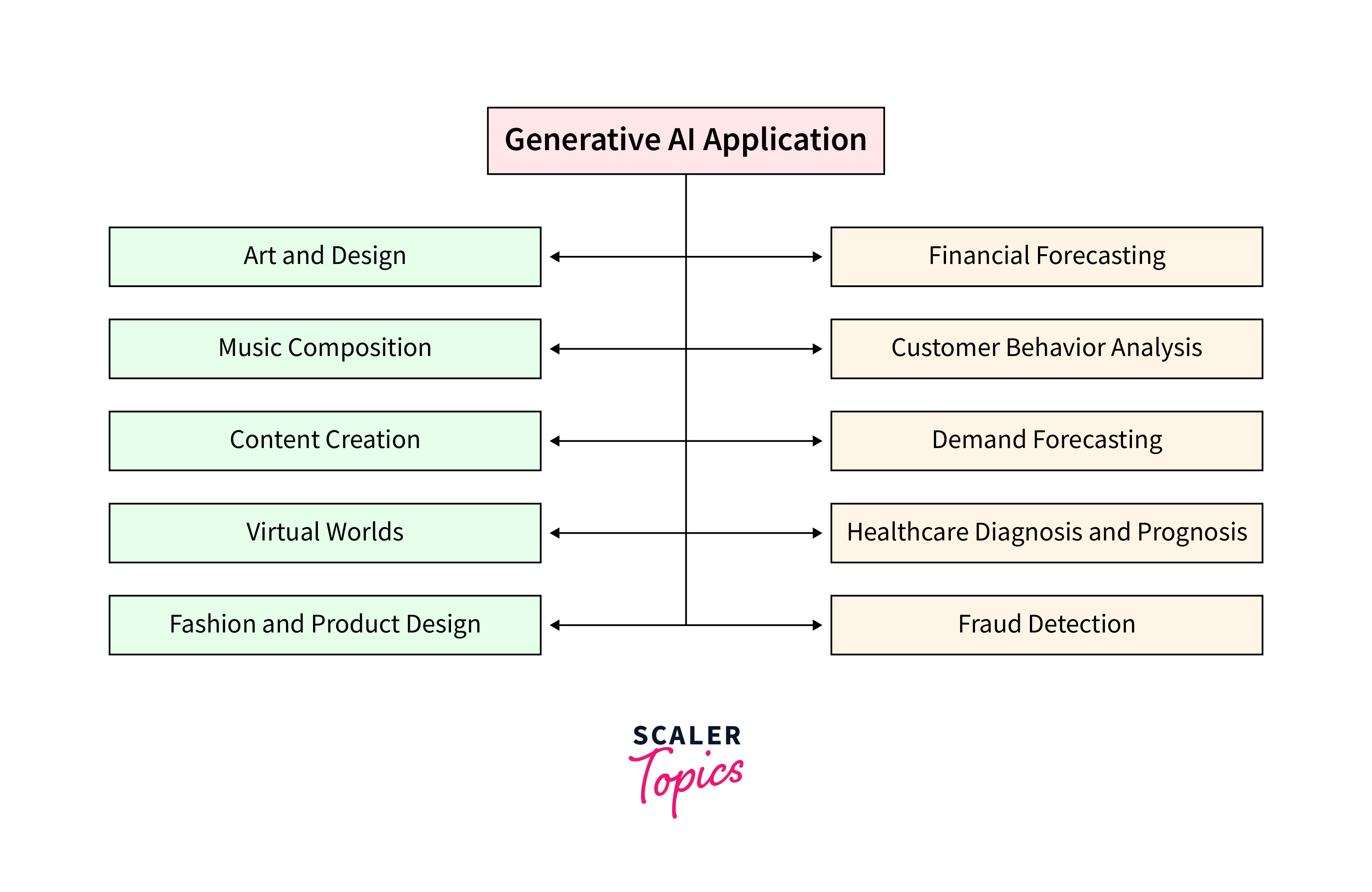
Career Opportunities
- Roles and Responsibilities: Careers in Generative AI involve roles such as AI engineers, data scientists, creative technologists, and research scientists.
- Skill Requirements: Key skills include expertise in machine learning, natural language processing, computer vision, and a strong foundation in programming languages like Python.
- Educational Pathways: A background in computer science, mathematics, or related fields is typically required, often supplemented with specialized courses in AI and machine learning.
Future Prospects
- Technological Advancements: Continuous advancements in algorithms and computing power will further enhance the capabilities of generative AI.
- Industry Adoption: Increased adoption across sectors like healthcare, finance, and creative industries.
- Emerging Opportunities: Future prospects include roles in ethical AI development, AI policy-making, and specialized applications in sectors like gaming and virtual reality.
Quantum Computing
Quantum Computing, a breakthrough in new trending technologies, is redefining computational power and capabilities. It harnesses quantum mechanics principles to process information in ways unattainable by traditional computers. This technology is particularly adept at solving complex problems in fields such as cryptography, material science, and pharmaceuticals.
Market Value
- Rapid Growth: The global market for quantum computing is anticipated to surpass $2.5 billion by 2029.
- Investment Surge: Significant investments from tech giants and governments signal a bullish market outlook.
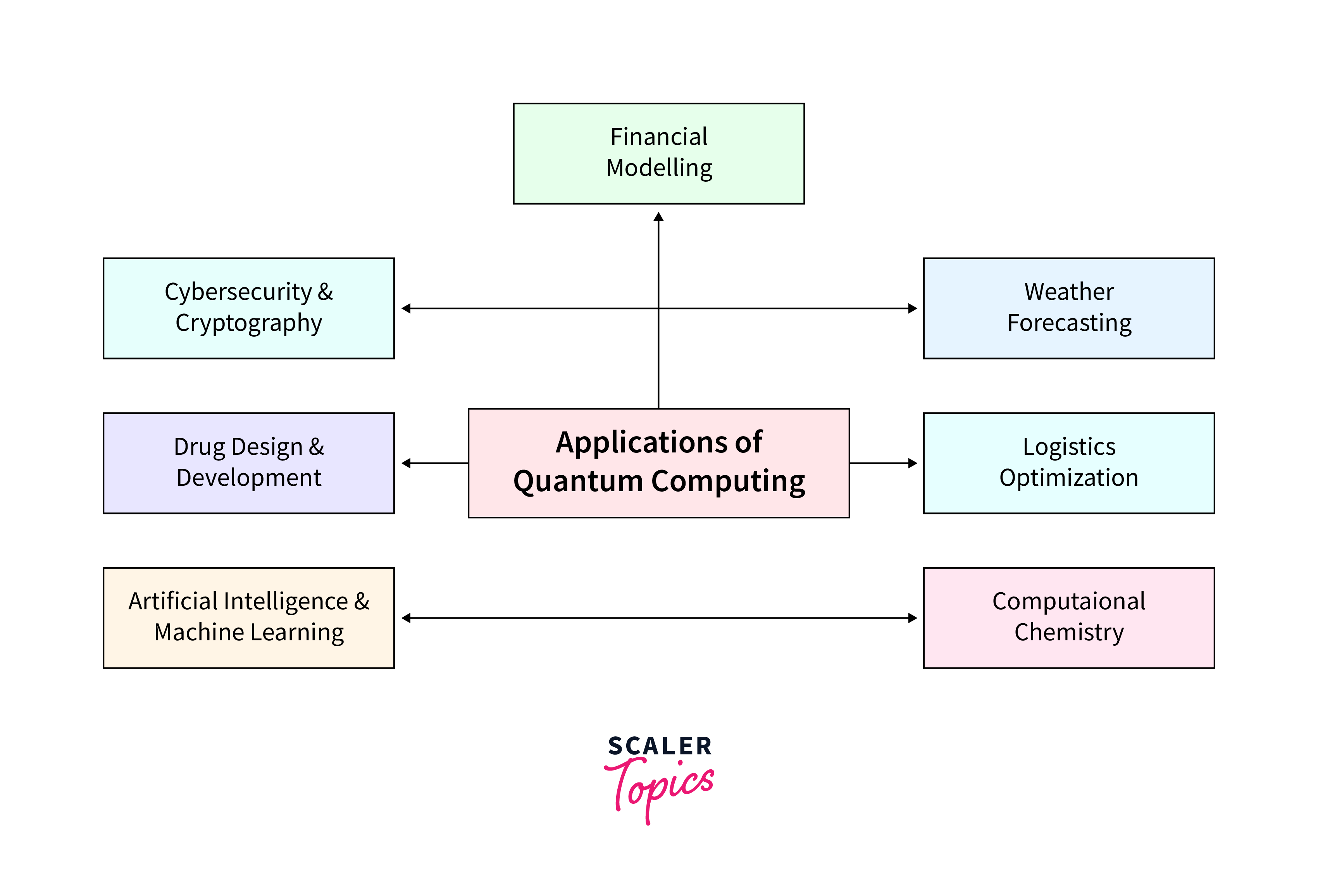
Career Opportunities
- Diverse Roles: Careers in quantum computing include quantum algorithm researchers, quantum hardware specialists, and quantum software developers.
- Educational Background: A strong foundation in physics, particularly quantum mechanics, along with computer science, is essential.
- Skills Development: Proficiency in advanced mathematics, algorithm development, and programming languages like Python and Q# is highly valued.
Future Prospects
- Expanding Applications: Quantum computing will play a key role in advancing fields like artificial intelligence, financial modeling, and climate research.
- Industry Integration: As quantum technology matures, integration with industries like cybersecurity and telecommunications is expected.
- Continuous Learning: Professionals in this field will need to stay abreast of rapid technological advancements and evolving quantum theories.
Cybersecurity
Cybersecurity, a critical component among current trending technologies, focuses on protecting systems, networks, and programs from digital attacks. With the increasing prevalence of data breaches and cyber threats, cybersecurity is more vital than ever, impacting industries globally and necessitating robust security measures.
Market Value
- Growing Demand: As digital threats escalate, the demand for cybersecurity solutions is intensifying, driving significant market growth.
- Wide-ranging Impact: Cybersecurity is essential across all sectors, from finance to healthcare, underlining its expansive market relevance.

Career Opportunities
- Varied Roles: Career paths in cybersecurity include cybersecurity analysts, ethical hackers, security architects, and incident responders.
- Skillset Development: Essential skills encompass network security, threat intelligence, penetration testing, and familiarity with various security tools and software.
- Educational Requirements: While a background in IT or computer science is common, many professionals also enter the field through specialized cybersecurity training programs and certifications.
Future Prospects
- Evolving Threats: As cyber threats evolve, there is a continuous need for innovative security solutions, ensuring a dynamic career landscape.
- Growing Specialization: Specialized areas such as IoT security, cloud security, and AI in cybersecurity are emerging as key focuses.
- Continued Learning: Cybersecurity professionals must stay updated with the latest threats, technologies, and regulatory requirements, emphasizing the importance of lifelong learning in this field.
Sustainable Tech Solutions
Sustainable Tech Solutions are a pivotal part of new trending technologies, focusing on environmentally friendly innovations. This field includes the development of renewable energy sources, sustainable manufacturing processes, and eco-friendly materials, aiming to reduce the environmental impact of technology.
Market Value
- Market Expansion: The emphasis on sustainability is driving growth in sectors like renewable energy, green construction, and sustainable transportation.
- Investment Increase: There's a significant increase in both public and private investments in sustainable technologies, reflecting a global shift towards environmental consciousness.
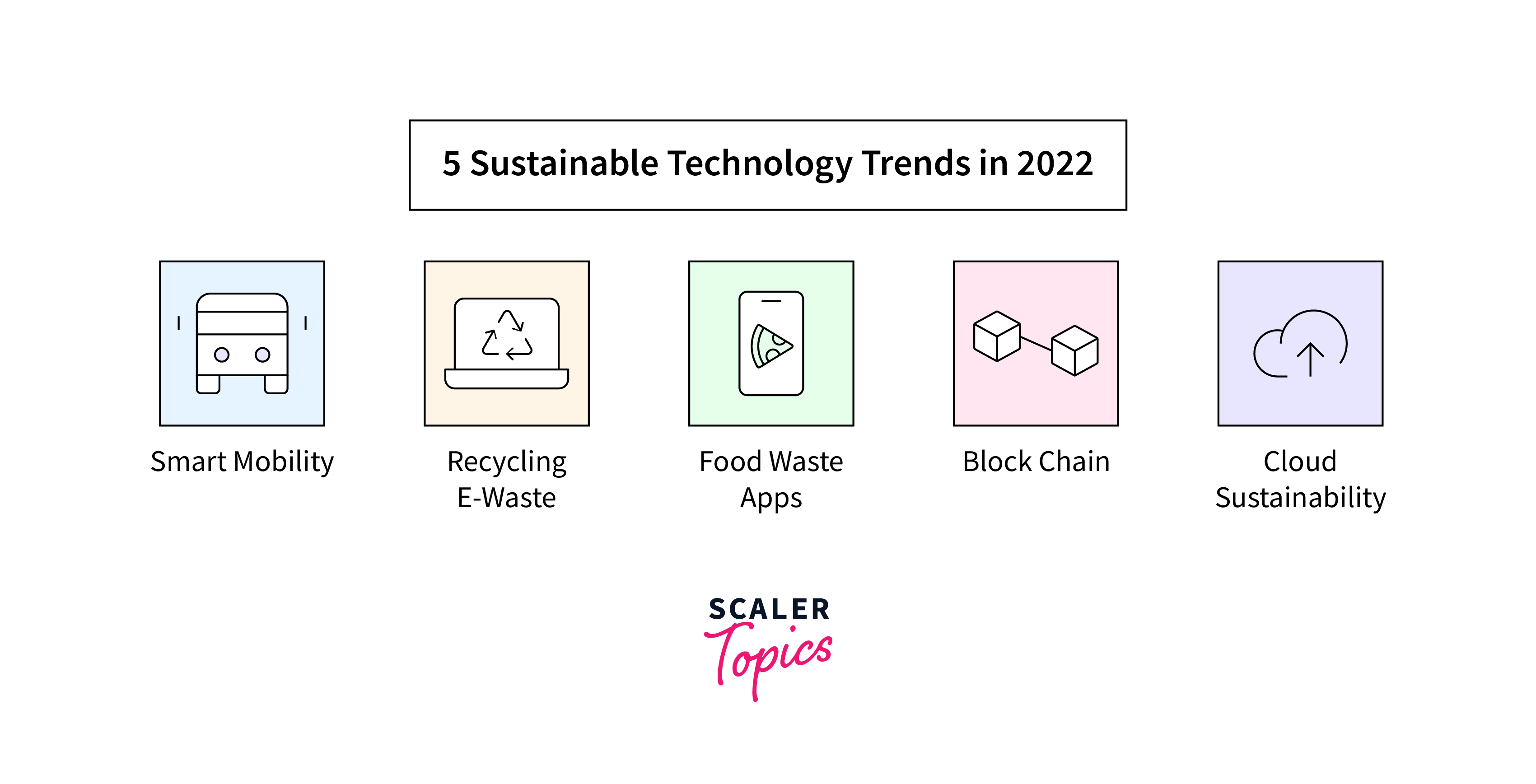
Career Opportunities
- Diverse Fields: Careers span across renewable energy, green building design, sustainable transportation, and environmental consulting.
- Skill Requirements: Skills in environmental science, engineering, and data analysis are highly valued, along with a deep understanding of sustainability principles.
- Educational Background: Degrees in environmental science, engineering, or related fields are common, supplemented by specialized training in sustainability practices.
Future Prospects
- Innovation and Development: Continuous innovation in sustainable technologies is expected, with new materials and methods emerging.
- Regulatory Influence: As governments implement stricter environmental regulations, demand for sustainable solutions in various industries will increase.
- Career Growth: Professionals can expect growing opportunities in research, development, and implementation of sustainable technologies.
Cloud Computing & DevOps
Cloud Computing & DevOps represent a significant trend in current and new trending technologies. Cloud computing provides scalable and flexible IT resources over the internet, while DevOps integrates software development and IT operations for faster and more efficient workflows. This synergy enhances business agility and technology deployment efficiency.
Market Value
- Industry Growth: The cloud computing market continues to grow, driven by an increasing shift towards digital transformation across industries.
- DevOps Expansion: The integration of DevOps practices is becoming essential for businesses, further boosting the market.
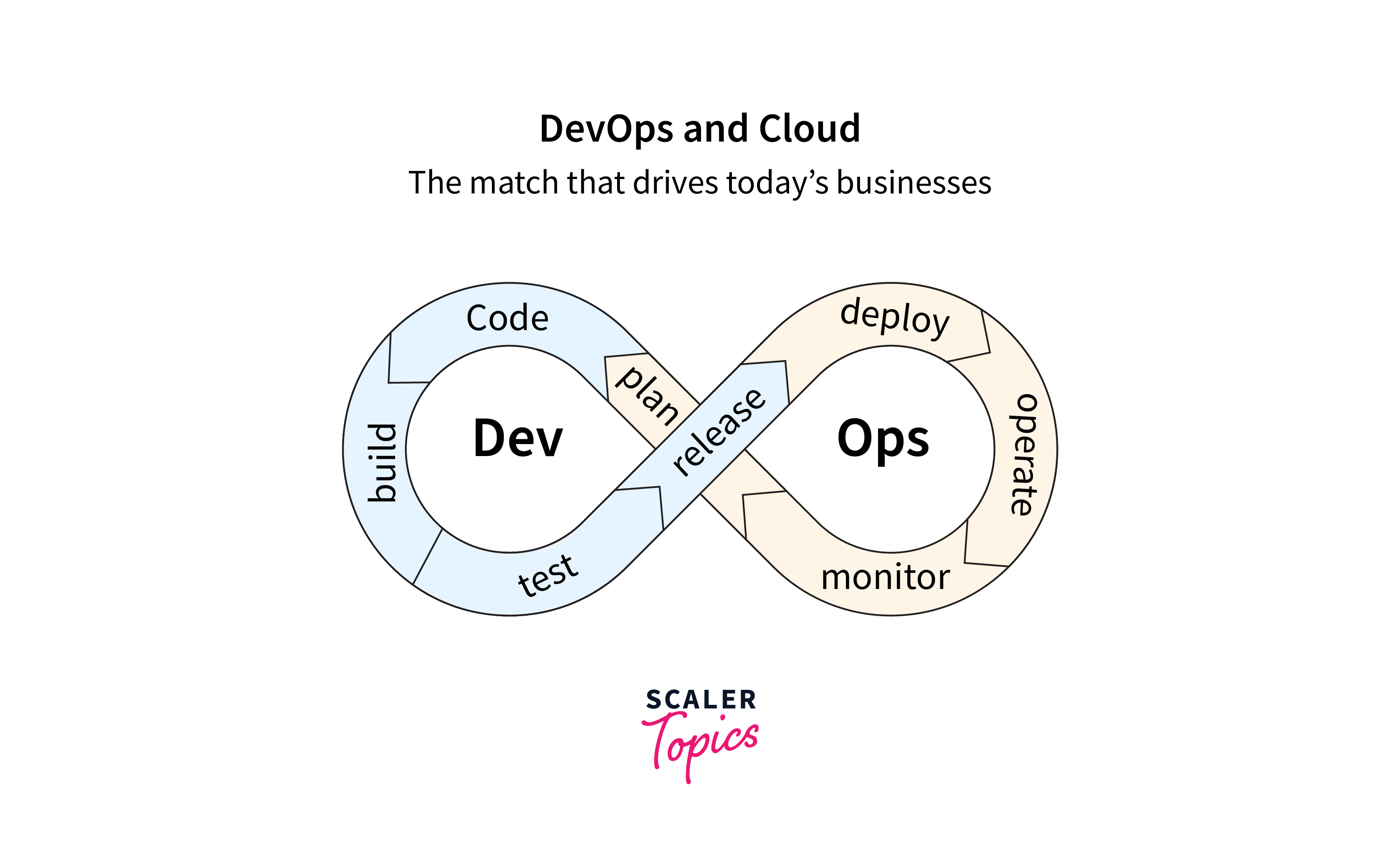
Career Opportunities
- Roles in Demand: Careers include cloud architects, DevOps engineers, cloud reliability engineers, and cloud security experts.
- Skillset: Proficiency in cloud service platforms (like AWS, Azure), automation tools, coding, and system integration is essential.
- Educational Paths: Typically, a background in computer science or IT is required, often complemented by certifications in specific cloud platforms or DevOps methodologies.
Future Prospects
- Technological Advancements: Ongoing innovations in cloud infrastructure and the continuous evolution of DevOps practices promise a dynamic career landscape.
- Increased Adoption: As more organizations adopt cloud and DevOps, demand for skilled professionals will grow, particularly in sectors transitioning to digital-first operations.
- Emerging Specializations: Cloud security, AI integration in cloud services, and advanced DevOps tools are areas likely to see significant development.
Robotics and Automation
Robotics and Automation, key players in the realm of current trending technologies, are revolutionizing industries by enhancing efficiency, precision, and safety. This field involves the development and application of robots and automated systems in various sectors including manufacturing, healthcare, and logistics.
Market Value
- Rapid Market Growth: The robotics industry, particularly in automation, is experiencing a surge in growth due to its wide-ranging applications.
- Investment Increase: Significant investments in research and development signify a robust market with expanding opportunities.
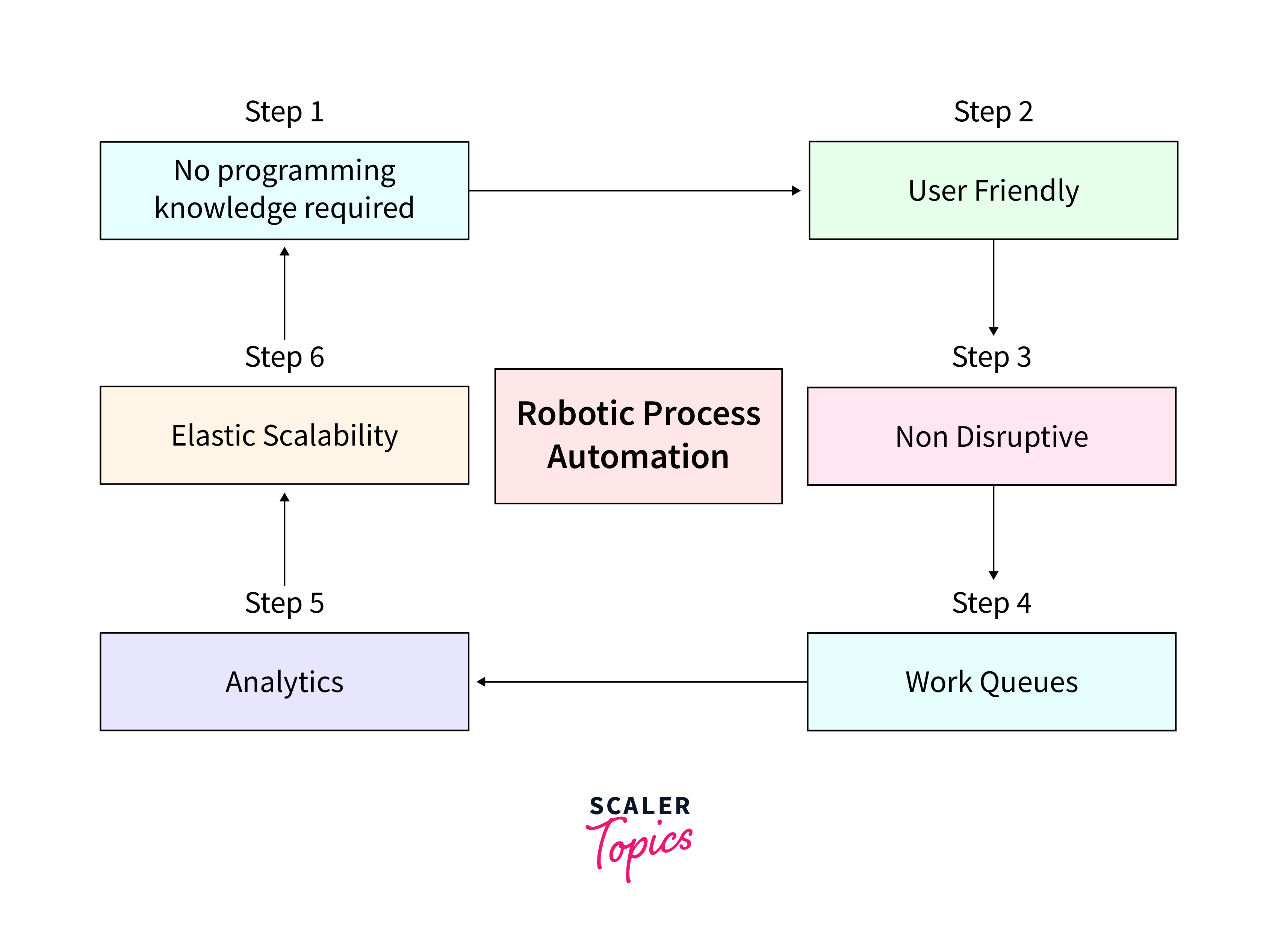
Career Opportunities
- Diverse Roles: Careers in this field include robotics engineers, automation specialists, systems integrators, and robotic process automation (RPA) developers.
- Skills Required: Proficiency in mechanical engineering, software programming, AI, and machine learning is crucial.
- Educational Background: A degree in robotics, engineering, computer science, or related fields is typically required, along with specialized training in robotics and automation technologies.
Future Prospects
- Technological Innovation: Ongoing advancements in AI and machine learning are expected to further enhance the capabilities of robotics and automation.
- Widening Scope: The application of robotics is expanding into new areas such as service industries, healthcare, and domestic use.
- Career Development: Professionals can anticipate a dynamic career with opportunities for innovation in design, implementation, and management of robotic systems.
Artificial Intelligence (AI) and Machine Learning (ML)
Artificial Intelligence (AI) and Machine Learning (ML), as current trending technologies, are at the forefront of technological innovation. AI involves creating intelligent machines capable of performing tasks that typically require human intelligence, while ML is a subset of AI focused on algorithms that learn from and make predictions based on data.
Market Value
- Expansive Growth: The AI market is expected to experience significant growth, reflecting its widespread application across various industries.
- Investment Trends: There's a substantial increase in investments in AI and ML technologies, indicating a strong market potential.
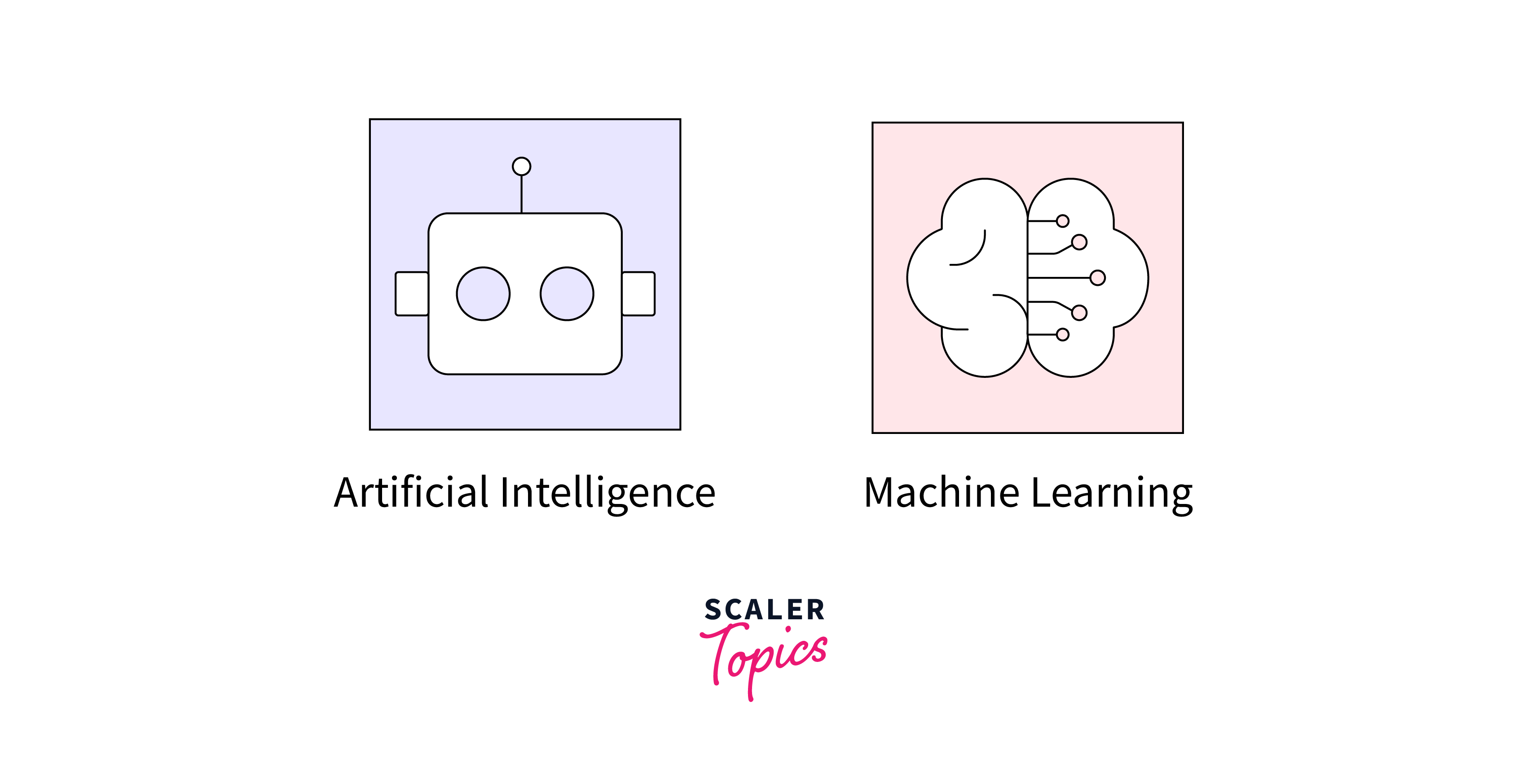
Career Opportunities
- Varied Career Paths: Roles include AI and ML engineers, data scientists, NLP scientists, and AI research scientists.
- Essential Skills: Proficiency in programming languages (like Python), algorithm development, data analytics, and an understanding of neural networks is vital.
- Educational Requirements: A degree in computer science, mathematics, or related fields, often supplemented with specialized training in AI and ML.
Future Prospects
- Continued Evolution: AI and ML technologies are continually evolving, offering new capabilities and applications.
- Industry Integration: Increasing integration in sectors like healthcare, finance, automotive, and customer service.
- Emerging Specializations: Future developments may include advanced AI ethics, AI in climate change mitigation, and autonomous systems.
Blockchain Technology
Blockchain technology, a rapidly emerging force among new trending technologies, is best known for underpinning digital currencies like Bitcoin. However, its applications extend far beyond cryptocurrencies, offering decentralized, secure, and transparent solutions for various industries, including finance, supply chain, and healthcare.
Market Value
- Market Expansion: The blockchain market is experiencing significant growth, with increasing adoption across diverse sectors.
- Investment Trends: There's a marked rise in investments from both private and public sectors in blockchain applications beyond cryptocurrencies.
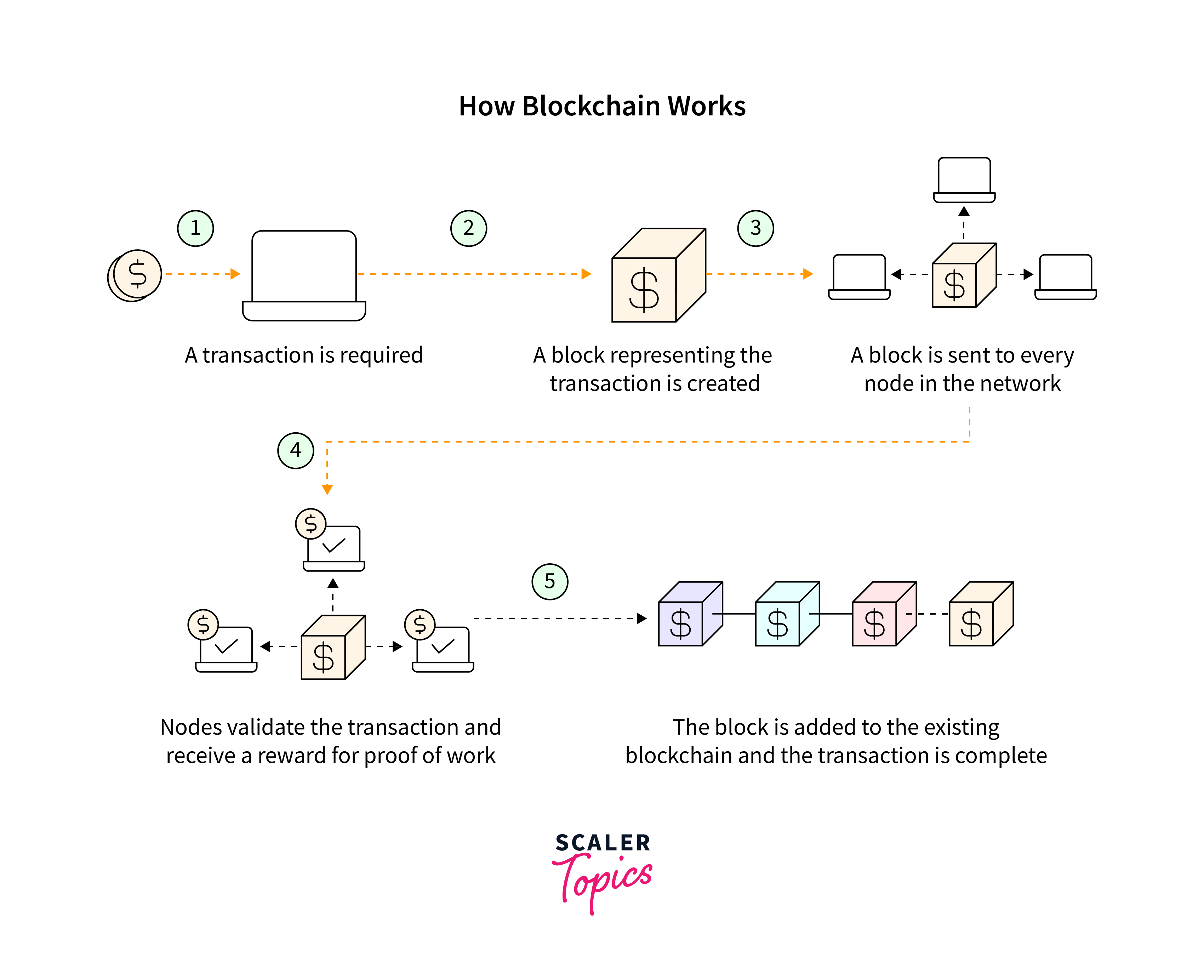
Career Opportunities
- Wide Range of Roles: Career opportunities in blockchain include blockchain developers, blockchain solution architects, and blockchain project managers.
- Skill Requirements: Skills in distributed ledger technology, smart contract development, and familiarity with programming languages like Solidity and Java are crucial.
- Educational Pathways: While a background in computer science or IT is common, specialized courses and certifications in blockchain technology are increasingly valuable.
Future Prospects
- Diverse Applications: The future of blockchain involves expanding its applications in areas like digital identity, voting systems, and decentralized finance (DeFi).
- Industry Integration: We can expect to see more industries adopting blockchain for its security, transparency, and efficiency in processes.
- Continuous Innovation: As the technology matures, new opportunities in blockchain development, consulting, and policy-making are likely to emerge.
Internet of Things (IoT)
The Internet of Things (IoT), a significant trend in current and new trending technologies, involves the interconnection of everyday devices via the internet, allowing them to send and receive data. This technology is transforming how we interact with our environment, making objects smarter and more responsive.
Market Value
- Exponential Growth: The IoT market is rapidly expanding, driven by increasing demand for connected devices in consumer, industrial, and healthcare sectors.
- Investment Increase: There's a growing investment in IoT infrastructure and applications across various industries.
Career Opportunities
- Range of Roles: Careers in IoT include IoT solution architects, system integrators, data scientists, and network security engineers.
- Required Skills: Essential skills include knowledge of sensor networks, data analytics, cloud computing, and experience with programming languages like Python and JavaScript.
- Educational Background: Degrees in computer science, electronics, or related fields are typically required, along with specialized training in IoT technologies.
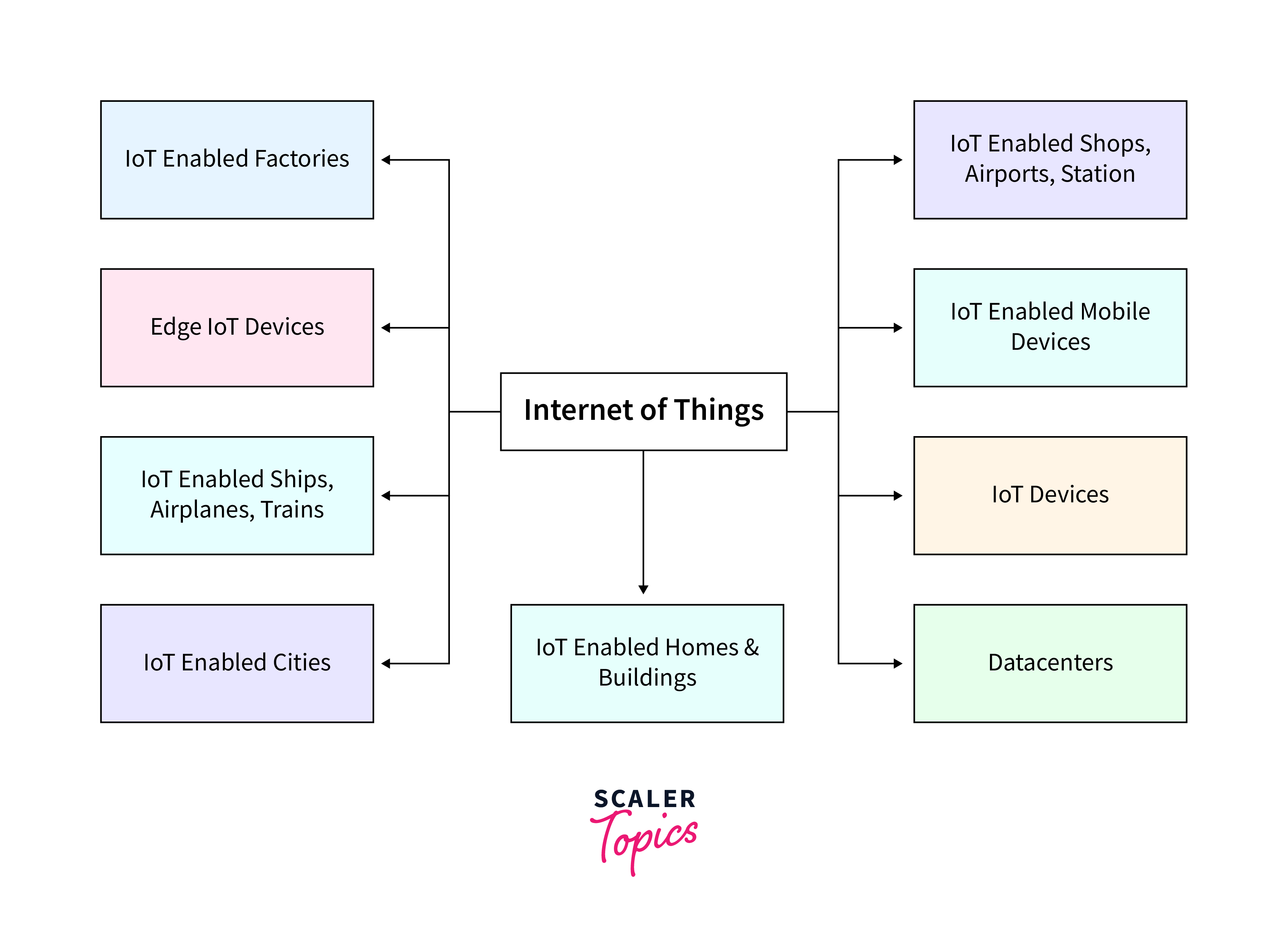
Future Prospects
- Wider Adoption: IoT is expected to become more prevalent in sectors like smart homes, smart cities, healthcare, and agriculture.
- Innovation in Connectivity: Advances in 5G and edge computing will further enhance IoT capabilities.
- Emerging Opportunities: Future developments will likely include more sophisticated IoT security solutions and the integration of AI for smarter device functionality.
Virtual Reality (VR) and Augmented Reality (AR)
Virtual Reality (VR) and Augmented Reality (AR) are rapidly growing among the current trending technologies. VR immerses the user in a fully artificial environment, while AR overlays digital information onto the real world. These technologies are revolutionizing gaming, education, healthcare, and real estate, among other sectors.
Market Value
- Significant Market Growth: The VR and AR market is experiencing rapid expansion, with increasing consumer and business applications.
- Investment Trends: Investments are surging in VR/AR content development and hardware improvements.
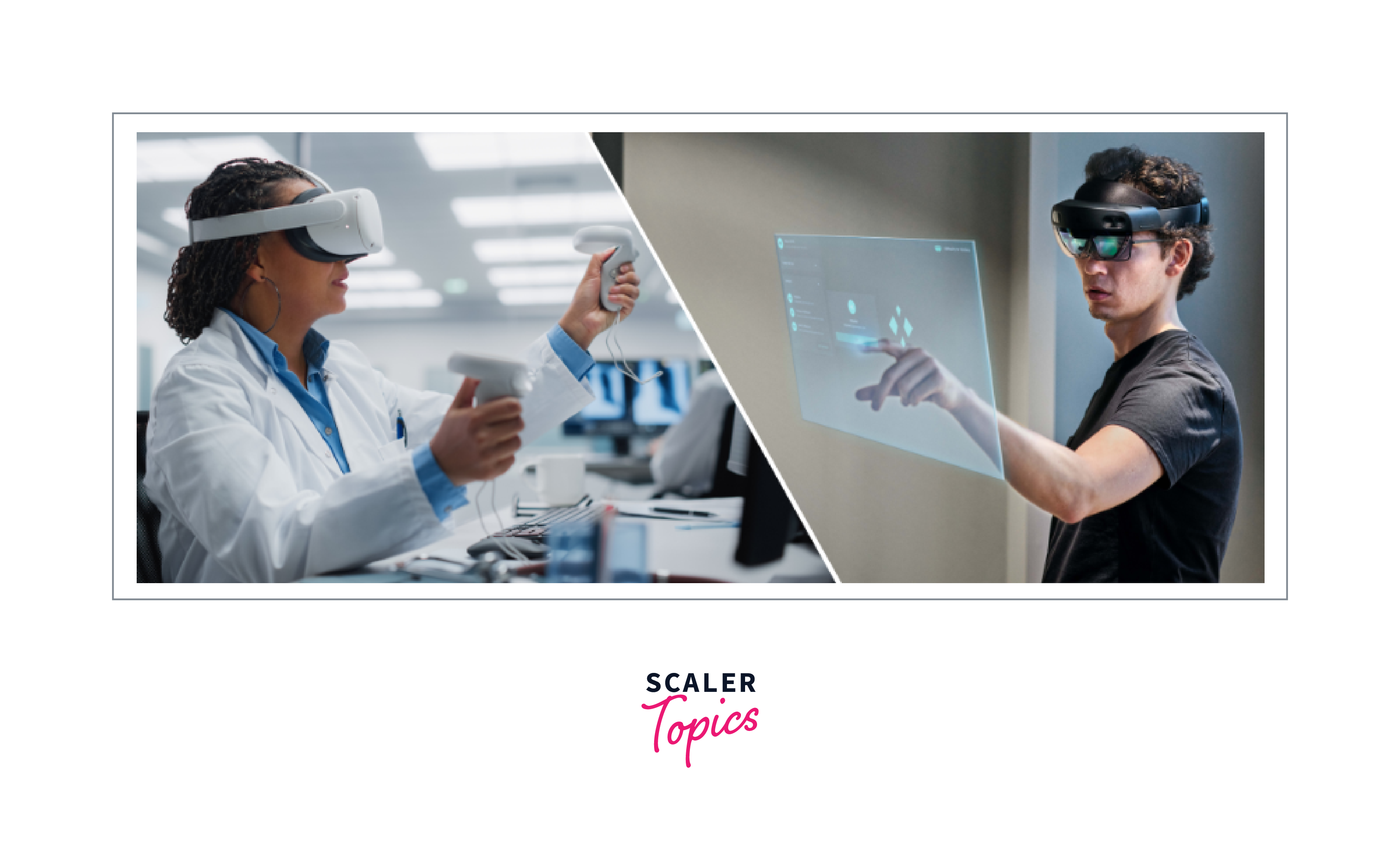
Career Opportunities
- Variety of Roles: Career paths include VR/AR developers, 3D artists, game designers, and user experience (UX) designers.
- Skill Requirements: Skills in 3D modeling, computer graphics, programming, and an understanding of VR/AR hardware are essential.
- Educational Background: Typically, a degree in computer science, graphic design, or related fields is beneficial, often supplemented with specialized training in VR/AR development.
Future Prospects
- Expanding Applications: Beyond entertainment, VR/AR will play a larger role in fields like education, training simulations, and virtual tourism.
- Technological Advancements: Innovations in VR/AR hardware and software will enhance user experience and create new possibilities.
- Emerging Opportunities: Future developments may include more advanced immersive experiences and the integration of VR/AR with other technologies like AI and IoT.
FAQs
Q. What is the best way to start a career in Generative AI?
A. To start a career in Generative AI, one should focus on gaining a strong foundation in machine learning, programming (especially Python), and data science. Engaging in online courses, boot camps, or degree programs in AI and machine learning is beneficial. Building a portfolio of projects and contributing to open-source projects can also be advantageous.
Q. How is Quantum Computing different from traditional computing?
A. Quantum Computing differs from traditional computing in its use of quantum bits or qubits, which can exist in multiple states simultaneously, allowing for vastly more complex computations at a faster rate. This is unlike traditional computing which uses bits that are either 0 or 1. Quantum Computing excels in solving complex problems that are beyond the scope of classical computers.
Q. Are there ethical concerns associated with AI and Machine Learning?
A. Yes, AI and Machine Learning raise several ethical concerns, such as biases in decision-making, privacy issues, job displacement, and the potential misuse of AI technologies. AI practitioners need to be aware of these concerns and work towards developing AI responsibly and ethically.
Conclusion
- The technological landscape is rapidly evolving, with new trending technologies like Generative AI, Quantum Computing, and VR/AR leading the charge towards innovation and reshaping various industries.
- These technologies are creating diverse and lucrative career opportunities. Professionals seeking growth should focus on gaining specialized knowledge and skills in these emerging fields.
- The advancements in these technologies hold immense potential for solving complex problems and improving quality of life, but they also raise ethical and social considerations that need to be addressed.
- Staying updated with the latest developments in these technologies is crucial, as the field is dynamic and constantly advancing.
- The integration of these technologies across different sectors suggests a future where interdisciplinary collaboration will be key to unlocking their full potential.
